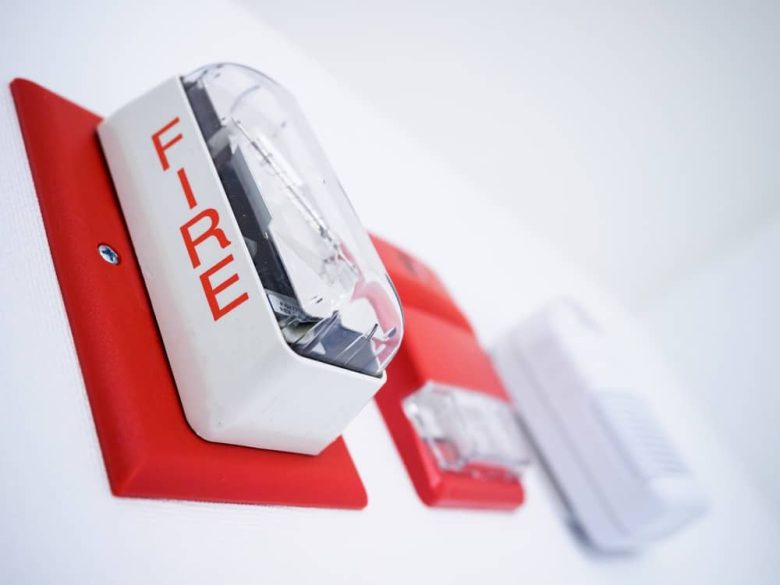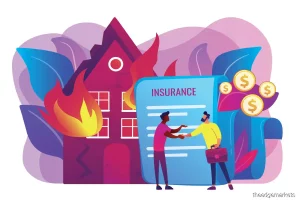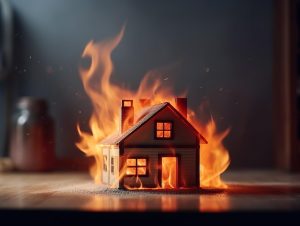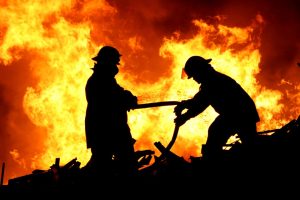Fire safety is an important part of safety that people often forget until a disaster strikes. But taking precautions can significantly reduce the risk of fire and protect homes and businesses from horrific damage. In this guide we will discuss useful and original methods of fire protection. These tips will make your home safer for you, your family, and your valuables.
Plan How to Install Smoke Detectors:
Location Matters
One of the first things you can do to protect your home or business from fire is to strategically place smoke detectors. Place detectors in important places, such as kitchens, bedrooms, hallways, etc. Also consider placing them near objects that could cause fires, such as heaters and electrical panels.
Maintenance Tasks
As part of normal maintenance, you should test your smoke detector once a month and replace the batteries at least once a year. Make sure the detector is functioning properly. In the event of a fire, these signals give you an early signal that you must quickly flee the building.
Smart Fire Detection Systems Offer Value for Money:
Advanced Technology
You may want to invest in a smart fire warning system that uses the latest technology. If these systems are connected to your home or business security network, they can send instant alerts to your phone in the event of a fire. Some systems even allow you to view them remotely, so you can watch without worry when you are not there.
Heat and Gas Alarms
In addition to smoke detectors, you may also want to install heat and gas detectors. They can detect sudden increases in temperature or the presence of dangerous gases and sound an audible signal before smoke appears. Early detection makes it more likely that quick action can be taken to stop or extinguish a fire.
Be Careful with Electricity:
Check Often
Fires are often caused by electrical problems. Check the electrical installation in your home or business every day. Check for signs of damage, such as exposed wires or overheated machinery. Correct any problems immediately to avoid fire risks.
Do not Overload Sockets
Fully charged sockets pose a major safety risk. Do not connect too many adapters to one socket and do not overload extension cords. Spread electrical equipment across multiple outlets to prevent overheating and reduce the risk of electrical fire.
Maintenance of Electric Heating Appliances:
Check the Chimney
For homes with fireplaces, it is important to have your chimney inspected and cleaned regularly. Creosote that builds up in your chimney can ignite and cause a dangerous chimney fire. Have your furnace inspected by a professional at least once a year to ensure it is operating safely.
Heaters
When using space heaters, make sure you follow safety rules, such as keeping them away from objects that could catch fire and never leaving them unattended. Choose newer models with safety measures such as automatic shut-off if they overheat.
Keep Flammable Objects Safe:
Keep Items Safe
Flammable items such as gasoline, propane and paint should be stored in a well-ventilated area, away from heat sources. Store items in approved containers and away from power tools and other items that could cause fire.
Paper and Things that Catch Fire
Keep flammable objects such as paper, cardboard and cloth away from tools that generate heat and open flames. Keep areas clean and tidy to reduce the risk of accidental fire.
Use Landscaping that Won’t Catch Fire:
For Fire Protection
For homes in wildfire-prone areas, fire protection should be provided with landscaping that cannot catch fire. Keep the area around your property safe by removing dead vegetation, cutting down trees and planting plants that won’t catch fire.
Watering System
Purchase an irrigation system to ensure that the plants around your plot are properly watered. Wet plants are less likely to catch fire, naturally preventing the spread of flames.
Training and Performance Exercises:
Education for Families and Workers
Teach your family or staff how to stay safe during a fire. Ensure that everyone knows what to do in the event of a fire through regular training. These include how to leave the building, where to meet and how to properly use a fire extinguisher
Develop a Fire Escape Plan:
Clear the Exit Path
Plan how to exit your home or business in the event of a fire. Make sure exits are clear of obstacles and easily accessible. Post your escape plan where people can see it and discuss it regularly with family or staff.
Emergency Telephone Number
Include emergency contact information in your flight plan. This list should include telephone numbers of nearby local emergency services, energy companies, and shelters or evacuation centers.
Use Building Materials that Do Not Catch Fire:
Materials that Do not Catch Fire
For homes and businesses, you may want to upgrade to fire-resistant building materials. These items, such as fire-resistant roofs, siding and windows, can add an extra layer of protection against the risk of fire.
Fire-Resistant Insulation
Install fire-resistant insulation to further improve the fire-resistant properties of your home. This helps prevent the spread of flames in the event of a fire.
Check and Update Security Measures Regularly:
Changing Risks
Security measures must continually evolve to address emerging risks. Regularly review and update your fire protection and security measures to stay ahead of potential threats. This includes integrating new technologies and adapting strategies to any changes to the property or its surroundings.
Professional Advice
Seek professional advice to assess the success of your fire protection measures. Fire safety experts can provide valuable insights, conduct risk assessments and devise solutions tailored to your specific needs.
Conclusion:
Through proactive fire prevention, you can equip yourself with the tools and knowledge you need to increase your safety. Protecting your home or business from the devastating effects of fire requires a comprehensive approach that combines technological advances, routine maintenance and strategic planning. By implementing these unique fire prevention tips, you will not only reduce the risk of fire but also create a safer environment for you, your family, and your valuables.
FAQs:
1. Why are strategically installed smoke detectors important for fire prevention?
Strategically placed smoke detectors ensure early detection of potential fires, allowing timely evacuation. It is crucial to install them in key areas, including bedrooms, corridors and near potential fire-hazard areas such as kitchens and heating units.
2. How does the smart fire detection system improve fire prevention?
Smart fire detection systems use advanced technology to integrate with your security network. They provide instant alerts on your smartphone for remote monitoring. Additionally, some systems include heat and gas detectors, increasing early detection capabilities.
3. What role does electrical safety play in fire prevention?
Electrical safety is critical to fire prevention. Regular inspections of electrical systems, avoiding overloaded electrical outlets, and quickly resolving electrical problems can help reduce the risk of fire due to electrical problems.
4. How does fire-resistant landscaping help prevent fires?
Fire-resistant landscaping is about creating defensible space around your property by removing dead vegetation, pruning trees and using fire-resistant plants. This approach acts as a natural barrier against the spread of forest fires, reducing the risk of property damage.
5. Why is it important to conduct fire drills and educate family members or employees about fire safety?
Conduct fire drills and educate individuals on fire safety procedures to ensure they are prepared for a fire. This includes understanding evacuation routes, assembly points, the proper use of fire extinguishers and other important aspects of firefighting. Regular training contributes to creating a safer environment.



